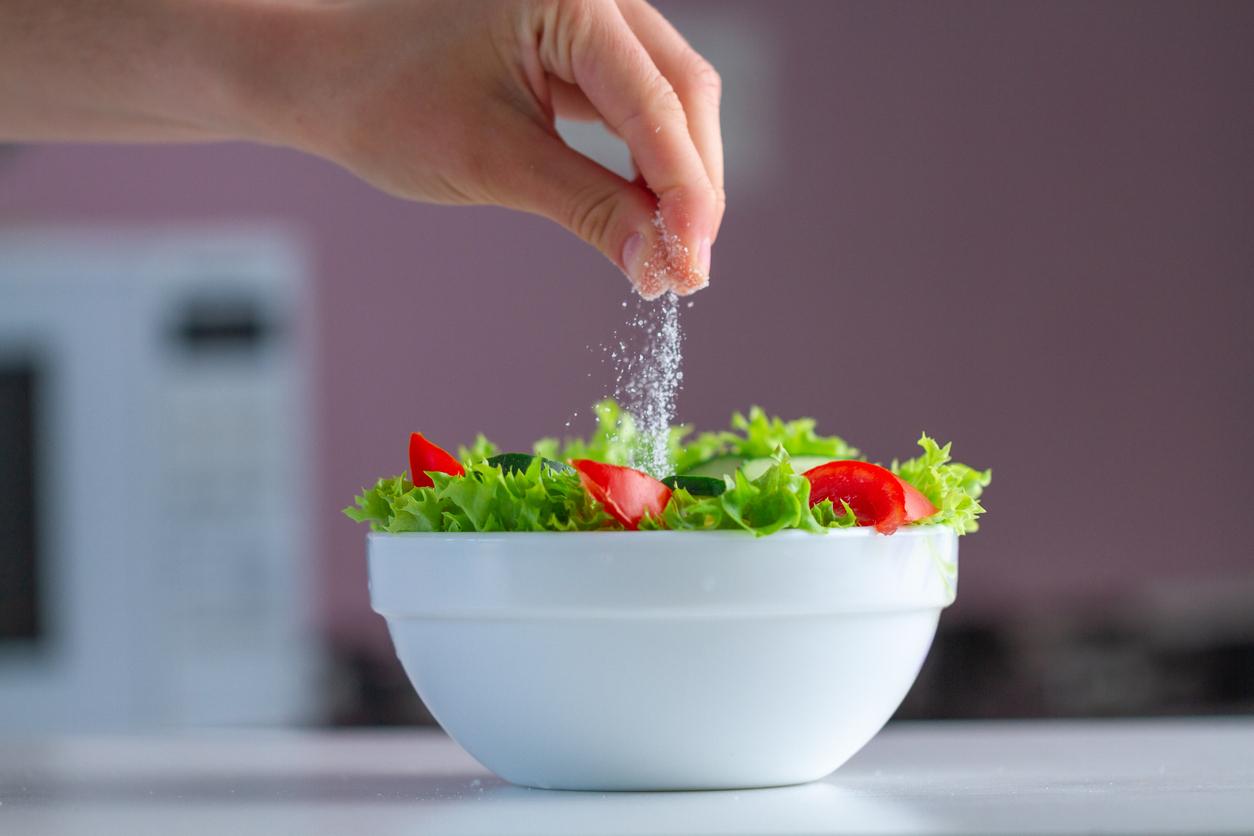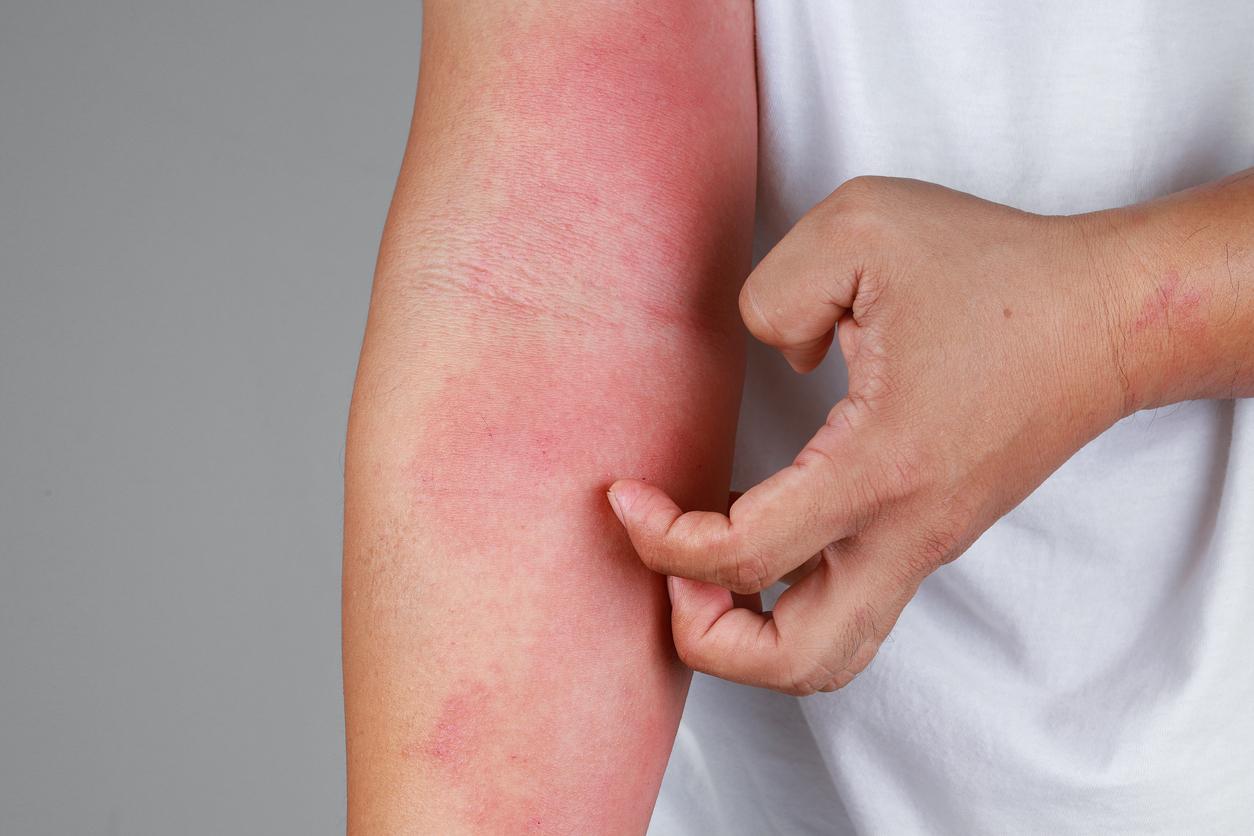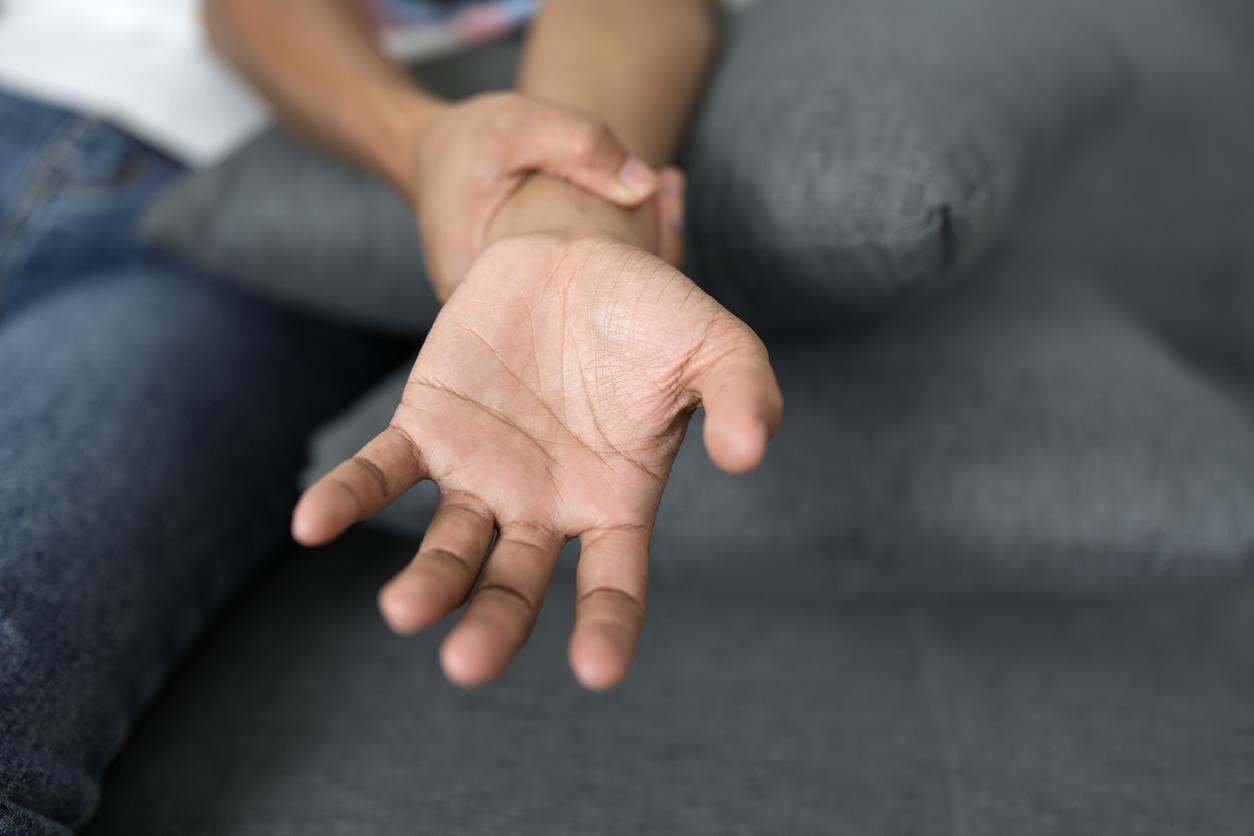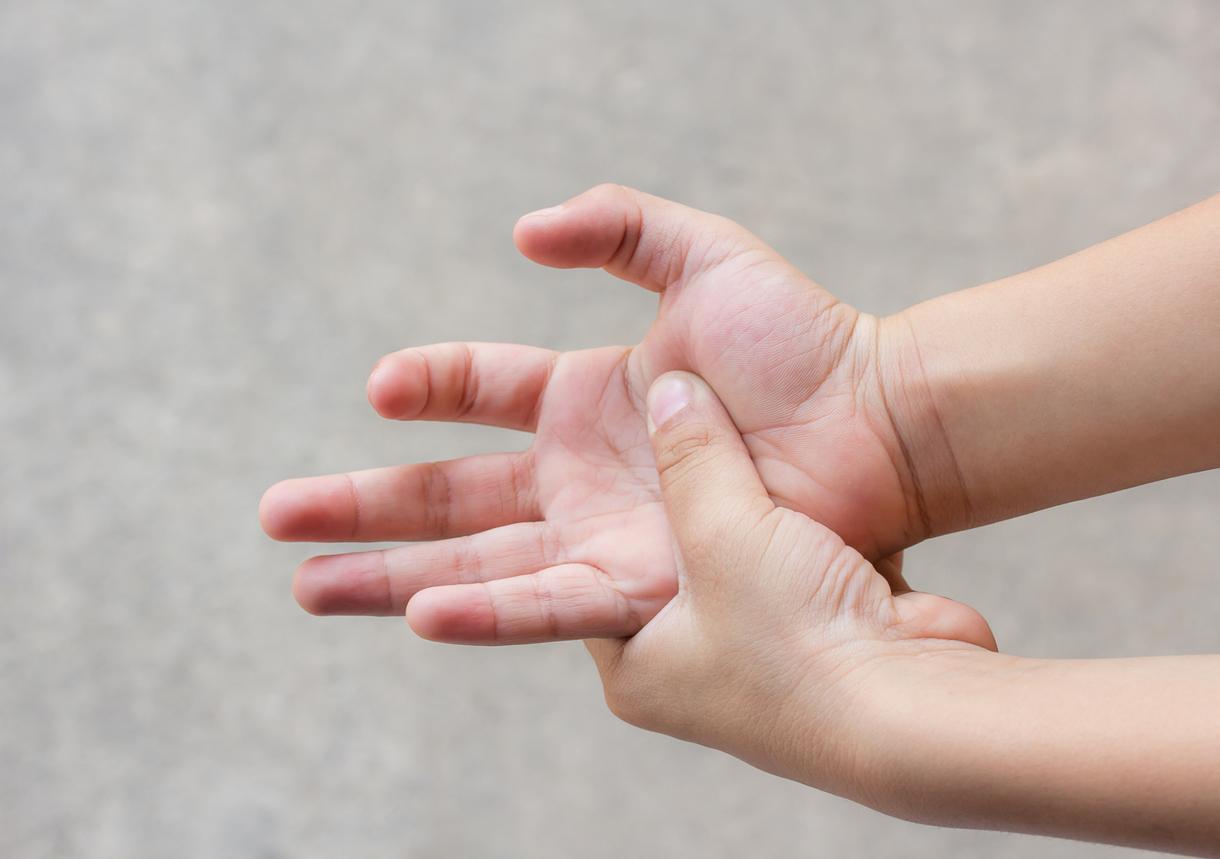When a person eats too much salt, it can lead to swelling in the hands and feet. Ultimately, the risk of hypertension increases.

- Hands and feet can swell when we consume too much salt.
- But it can also lead to headaches and a need to urinate more frequently.
- Overconsumption of salt is one of the causes of hypertension.
We consume too much salt. L’World Health Organization is formal: “Almost all populations consume too much sodium.. This mineral is present in table salt. Salting your plate before even having tasted it or regularly eating prepared meals largely contributes to this overconsumption of salt. But how do we know if we’re eating too much? In the British media Daily Maila nutritionist gives advice: look at our hands and feet.
Hands and feet: what are the consequences of overconsumption of salt?
Olivia Burley, nutritionist and member of the British Diabetes Prevention Program, recalls that excess sodium in the body causes edema. “When too much salt is consumed, the body retains the extra sodium and increases fluid outside the cells“, she specifies. Concretely, this will lead to swelling of the fingers, hands and/or feet. “It’s not an instant response that appears right after eating, but if within 24 hours of eating salty foods you notice swelling in these areas, it could be related.”, adds Pippa Hill, nutritionist. Sitting for a long time or long journeys in transport can increase swelling. If this persists, it is recommended to consult a doctor.
Other signs of excess salt in the body
Overconsumption of salt can cause other symptoms. Headaches are one of them: they are linked to dehydration. “They appear an hour or two after eating, as sodium levels increase in the body.”, develops Pippa Hill. Painful and throbbing, these headaches can be resolved by rehydrating quickly.
Excess sodium in the body can also manifest itself in frequent needs to urinate. “Excessive thirst is a common response to eating salty foods and naturally leads to increased fluid intake, causing excessive urination. analyzes Olivia Burley.
Hypertension: a serious consequence of excess salt
A diet that is too salty can have cardiovascular consequences. “Salt is the main cause of hypertensionpoints out Pippa Hil. In just 30 minutes, eating too much salt causes a body reaction in the blood vessels.” Increased blood pressure on artery walls is a risk factor for heart attacks and strokes.
Salt: how much should you consume?
To limit the risk of hypertension, you must therefore monitor your salt intake. “For adults, the WHO recommends consuming less than 2 g of sodium per day (equivalent to less than 5 grams of salt per day (a little less than a teaspoon)”, she specifies. According to theHealth Insurance, we consume instead 8.5 g of salt per day on average. According to the organization, reducing salt intake is an effective way to reduce blood pressure without treatment. “Rather than trying to know exactly how much salt you are going to eat, try as much as possible to choose foods that are low in salt, warns Health Insurance. At first, low-salt food may seem strange and bland, but the taste has the ability to adapt within a few weeks and make you rediscover the flavors unique to foods.” This requires avoiding consuming too much bread, cold meats, cheeses, smoked fish, aperitif biscuits or even prepared meals.


















